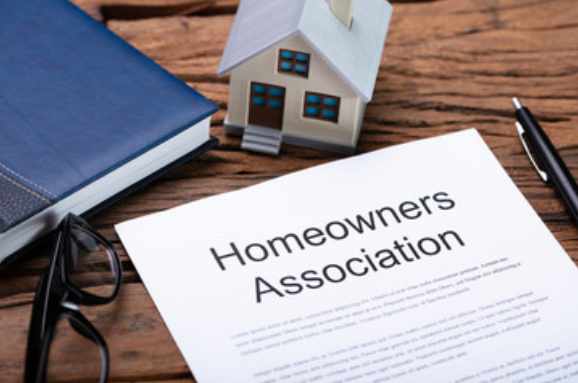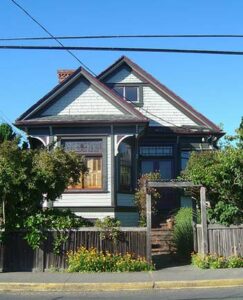Have you ever thought your neighborhood was poorly run? This may not describe everyone, but maybe you would enjoy managing your HOA so that it runs more smoothly. Being a part of a robust community of homeowners in a condo or townhouse community can be a challenging, thankless job, but it can also be quite rewarding.

Unfortunately, some HOAs have a bad reputation. Some people would prefer not to be involved in them. And that’s fine. But others do enjoy it and like to take advantage of the benefits involved.
While living within a community that has an HOA, there are rules and guidelines to be followed. These rules and guidelines exist to make the community better, increase/maintain property values, and provide a means for keeping the community in good shape. So, how do you go about successfully managing your HOA? Read on to find out four strategies that can surely help.
What Does An HOA Manager Do?
Being an HOA manager comes with a lot of responsibility. Many HOA board members are volunteers, with little or no formal training. So it’s the responsibility of the managers and directors to help facilitate training and handle coming to a peaceful resolution for most problems together.
Miscommunication and lack of two-way communication can be a big problem. Even financial or legal issues might crop up from time to time as well. An HOA manager and board need to be prepared for these eventualities. If everyone comes together to solve common issues, it will result in more harmony and happiness within the community.
Another important aspect of an HOA manager’s job is to ensure that the bylaws and Covenants, Conditions, and Restrictions (CC & R’s) of the association are being followed. The latter lays out the community’s rules while the former is all about how operations are performed. Understanding and implementing them is replete with challenges. It’s the duty of the HOA manager to rise to the challenge and ensure CC&Rs are being upheld while operating within the standards outlined in the bylaws.
4 Strategies for Managing Your HOA
1. Engage With Other Members
Part of any good leader’s role within an organization—even if the said organization is an HOA—is to interact with and engage with other members. A manager isn’t some sovereign figure with complete autonomy over the entire homeowner’s association. Instead, they’re supposed to be a conduit for facilitating communication and interaction between different members of the association.
Engaging with other association members is one of the key ingredients to success in managing and enforcing HOA policies. People want to be heard. They want their opinions to matter. Validation is important, especially for homeowners who have invested in their homes in the community.
Listen to what they have to say, take their concerns seriously, and actively involve them in the community. Nobody will want to move into a neighborhood where problems exist. Better communication across the board will make being part of the HOA a good experience rather than a hassle for the homeowners in the community.
2. Use Management Software
A big part of running your HOA is managing money. Paying dues, receiving payments, budgeting around them, allocating them for repairs/maintenance, and hiring vendors are all things a community manager typically has on their plate. Especially in a condominium community, where the common areas are much more closely together, maintaining them becomes even more integral.
Ideally, you want to empower homeowners to also be able to operate with some level of autonomy. They should be able to submit maintenance or repair requests easily through an online interface. Those requests should filter down to you and you should be able to address them promptly.
The best way to do this is by using automated condo management software. Whether you need to collect fees and special assessments, inform members of what’s happening in the organization, or check out financial statements and other reports, automation software is going to be extremely helpful for any role under the community manager umbrella.
3. Hold Regular Board Meetings
Never underestimate the value of a board meeting. Board meetings are an essential function of running an HOA. It’s a way for the community to get together and discuss important decisions that affect the community. There should already be a basis for what the board meeting is about based on previous discussions. It doesn’t make sense to start over every time you do a meeting.
Members of the board should schedule meetings so that people can attend them and communicate. Consistent meetings inform the direction of the HOA and help run things as smoothly as possible.
So what goes on in a meeting? It can be any number of things. Ideally, there should be a clear agenda that gets covered throughout the meeting. This is a good way to organize and make decisions collectively.
Board meetings usually focus on certain things, which will be the only items voted on or decided upon in the meeting. Everything from allocating funds, to changing landscape, to discussing pet policies/dog parks, or even parking issues may come up throughout a board meeting. These are all vital concerns that affect the everyday lives of homeowners.
When you’re running a board meeting it’s best to start small with the stuff that can be solved easily and move on to more challenging topics as the meeting progresses. It’s also a good time to clarify policies, go over where funds are being used, solicit any feedback, and hopefully provide a solid ground for letting everyone in the community contribute. Communication is the key to letting homeowners know they have a voice, reinforcing policies, and being as clear and transparent as possible as you manage the community.
4. Plan for Risk Management

Do you know what type of risks are involved in a typical HOA? The primary concerns are property, personnel, liability, and net income risks. Risks to anything that impacts the structures or effects of the property are something to watch out for as a community manager.
Anything third party that might cause loss or damage is a liability risk. When expenses increase and income decreases, that’s a net income risk. If board members and other members of the HOA start coming and going frequently, then you have a personality problem.
All of these risks are inherent in managing your HOA. So, you need to plan for them and develop mitigation strategies to reduce fallout from these inevitabilities. Sometimes adverse things happen. But keeping risk to a minimum is part of the community manager’s role in the organization.
Some of this can be done through automation software, especially on the financial and property side of the equation. There’s a lot involved with risk management. Keeping the community safe, protected, and profitable while maintaining its reputation is a lofty goal for anyone. But with the right tools, any manager can do it.



